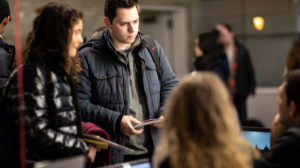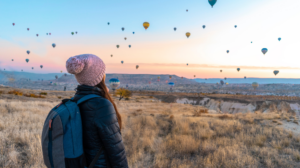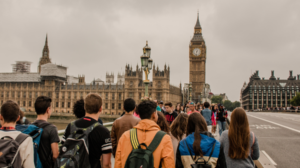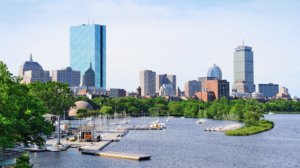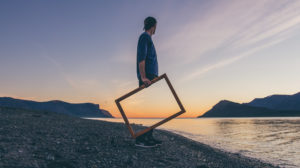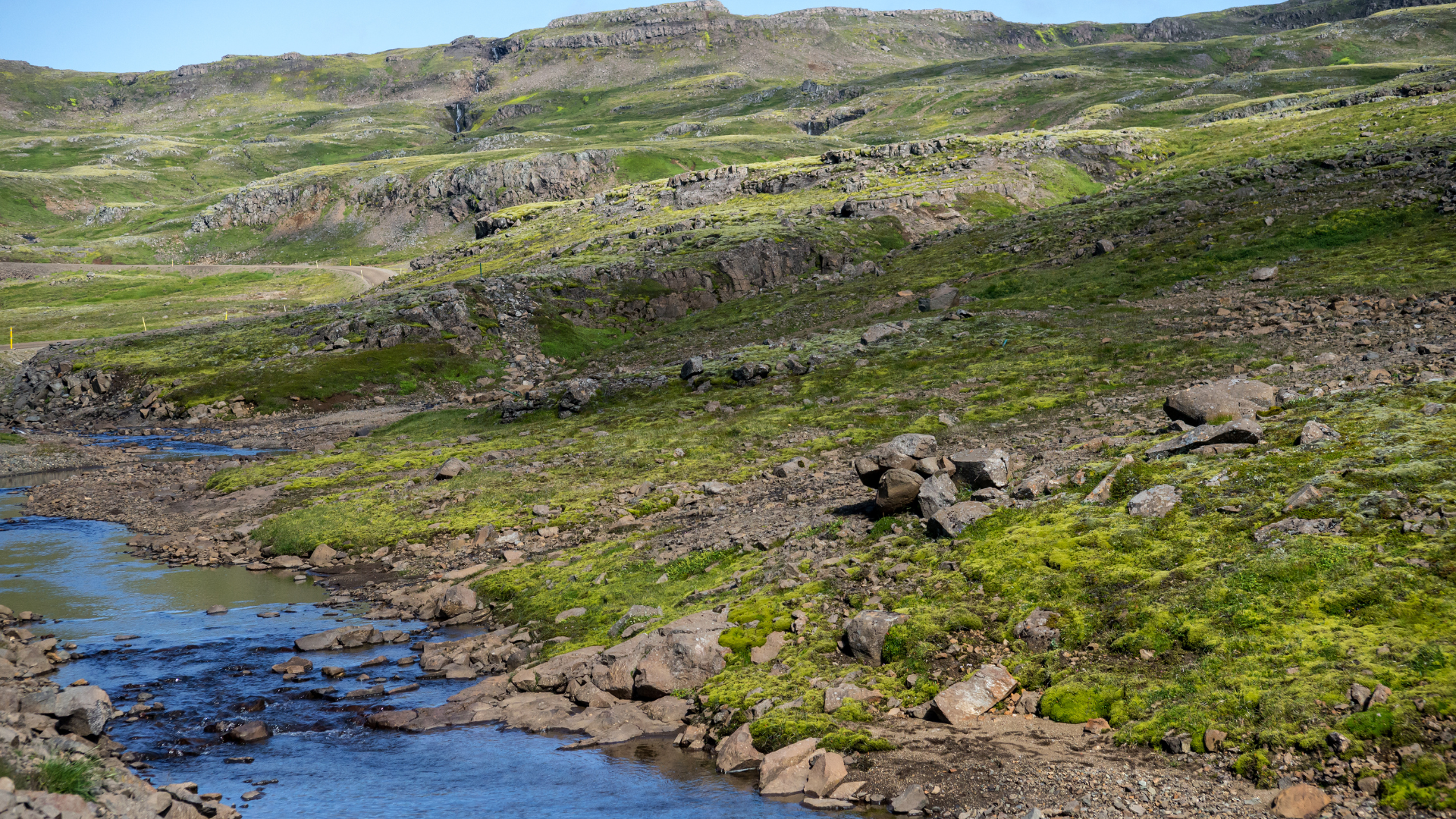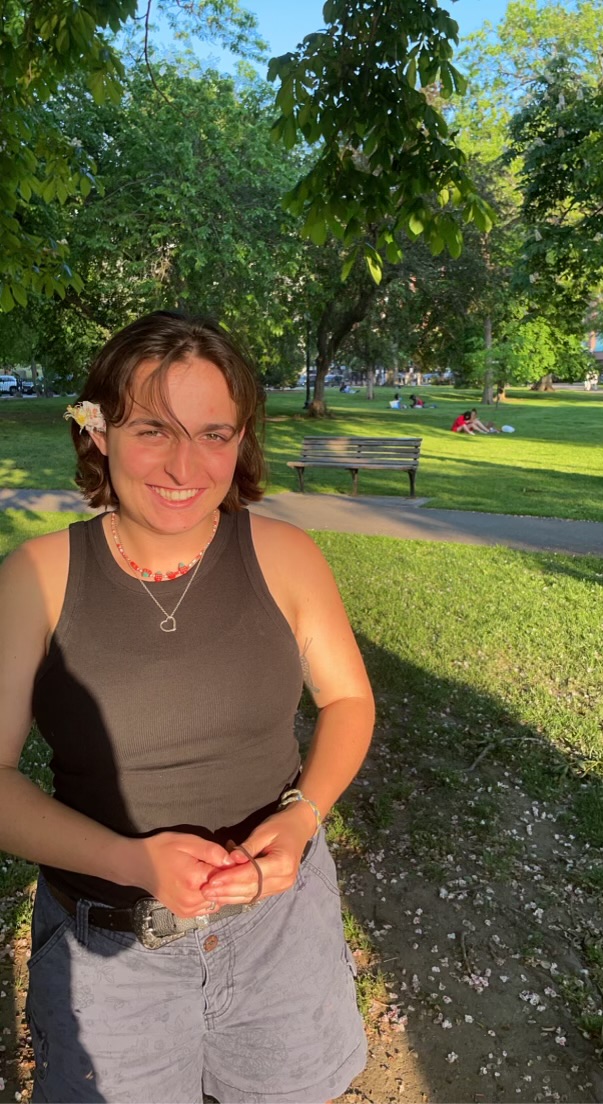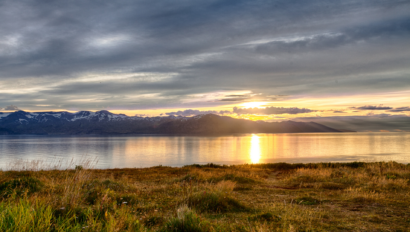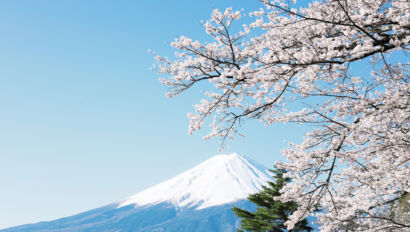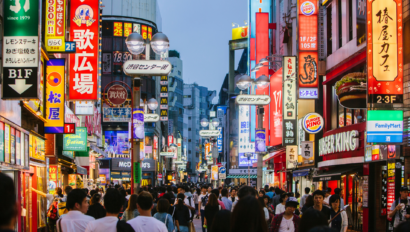On a dewy morning in Iceland, our hiking boots clunk and crunch over a geologically-recent lava flow. It’s the first stop of the day, and we’re to do a field exercise—dating the lava flows, observing their minerals, and constructing logical history. The new rocks are overlain with a thin layer of light-green moss and intricate lichen. A few low flowers hover in colorful clumps.
Our professor, Amy, tells us that it’s taken eight thousand years to form enough soil here to grow this much moss. We walk on it like nothing. Moss and lichen that have fought tooth-and-nail to exist here post-glaciation stick to the soles of our shoes.
I can hardly conceptualize eight thousand years. But I can think about growth and what it takes to become.
There are a few things I’ve done so far on this trip that I never would have done otherwise. Among them: stand on a glacier, ride Icelandic horses, swim in near-freezing water, and try traditional meat soup made by our bus driver. A trip abroad is often time to push a little—not too far—past your personal limits and see how you come out the other side. But this doesn’t have to mean only the typical adventures you see on Instagram, or the “once-in-a-lifetime” opportunities you mostly take for the story.
Dialogue Growth
I ask some of my classmates if they’ve tried anything new on this trip, if they’ve surprised themselves, how they’ve grown. Ashlee, a fourth-year Biology major, tells me she was on the fence about camping.
“When I was fourteen, my friend wanted to go camping for her birthday. But it was January.”
She tells me it was freezing, someone set up the tent wrong, she never wanted to go camping again. But it’s worked out so far—she’s sleeping well and she enjoys having her own space.
“My tent hasn’t collapsed on me yet.”
I don’t mind sleeping on the ground and I love waking up essentially outside. The rain, however, has taken some getting used to. I haven’t yet learned how to keep all my things dry. It’s been frustrating at times to deal with the elements in my collapsible bedroom. But after this trip, New England weather will feel like nothing.
Others find the diet to be an interesting challenge. Thalia, a second-year Civil Engineering major, considers herself a picky eater. On this trip, she tried her first strawberry. Faith, also a second-year, tried her first bite of coleslaw. We eat what’s available and what’s sold in the country, so many people have expanded their pallets.
For some, it’s more about seeing things in a different light. Jacob, a fourth-year Finance major, came to Iceland with his family when he was in high school. He toured the southern part of the island and saw the entire Golden Circle, a typical tourist route around some of the most breathtaking sights in the western region.
This time, he’s paying more attention. We’ve visited some of the same sights he’d seen five years ago, such as the sight of Iceland’s historic congress called the Althing. The cultural significance is inseparable from geologic history—fault lines and glacial lakes add profundity to the landscape. This International Heritage site, located in a rift valley between the North American and Eurasian plate boundaries, is a place where you can feel history beneath your feet.
Jacob says, “Now, not only can I see something and appreciate its beauty, but I can also speak to how it came to be. I can appreciate the significance of something like the Althing in addition to how mesmerizing it looks.”
Emma, a fifth-year and our PA, is on her second trip. She finds a lot of her growth is internal.
First, she tells me, “Each trip I’ve grown a half inch taller.” Then, more seriously, “It’s an opportunity for internal validation. I was nervous for some of the long hikes, but I learned to tell myself I can do it, even if I’m going slowly,” she says. “As a PA now, it’s important that I set the tone for how others think about themselves, too.”
Personal Growth
For me, the most growth has come socially. I already say yes to most adventures if I’ve gotten enough sleep, and I already love to hike and be outdoors. However, I don’t always challenge myself to meet new people. On this Dialogue, it’s hard not to. We’re in close quarters for thirty days straight, and thankfully they’ve proved easy people to befriend. There’s no assigned bus seats or tent neighbors; most everyone tries to branch out and welcome others into the circle.
The social nature of the trip means it’s also an opportunity to learn how to say no. While I love the people I’ve met, I’ve noticed when I start to feel burnt out. It’s a chance to learn how to prioritize downtime to recharge. Emma agrees, saying she’s learned how to say ‘no’ without feeling guilty, even though she loves to hang out with everyone. It’s crucial to know your limits and learn to honor where you are.
I’ve also found the dialogue an opportunity to learn to unplug. I deleted most social media apps from my phone when I got to the airport. Without mindless scrolling, I find other ways to fill my time—reading, writing, going for walks, talking with friends.
Moss and lichen are often the first to colonize an area after a volcanic eruption. Their spores travel far from home to endure harsh conditions, rocky highlands, low temperatures, forceful winds. And throughout their life cycle, they leave the land behind them better than they found it. Life can flourish.
I can’t be certain how my Dialogue habits will transfer to my life in Boston. Honestly, I will probably re-download Twitter. I may not start a conversation with everyone I see. But, I’m hoping I will come out at least an inch taller and a few pounds stronger. At the very least, I’ll have twenty-eight new friends to wave to as I walk through campus.
Not everyone wants to go skydiving (though that sounds fun, too). Some take the once-in-a-lifetime opportunity to meet a new person, to work on speaking to yourself kindly, to appreciate the history and beauty of things. To grow in ways people can’t see. To grow like moss: slowly and strongly. When I leave, the ground is stronger behind me.

